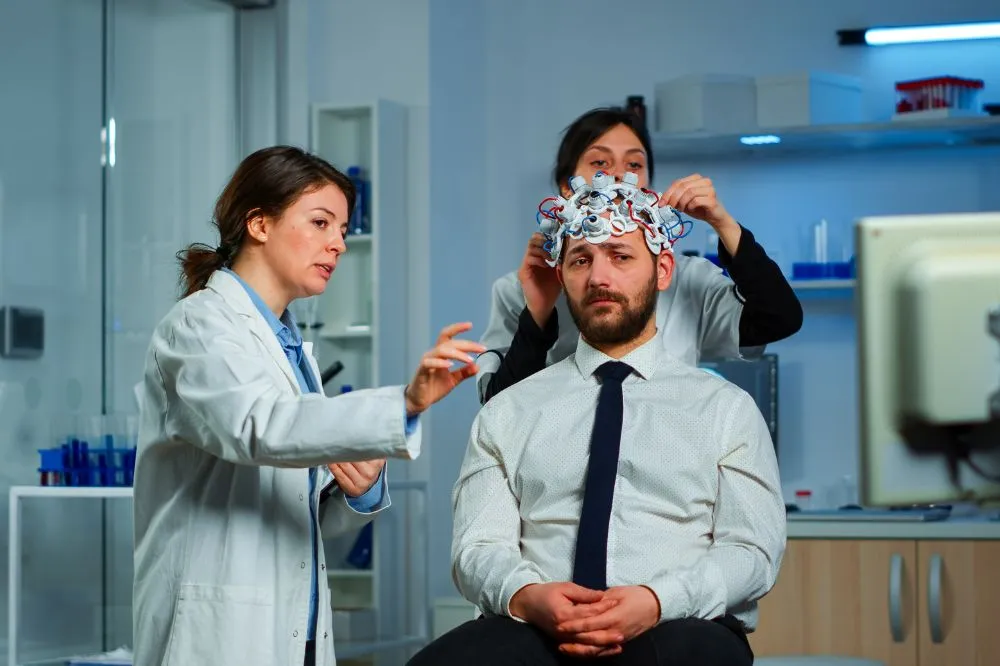Summary: Researchers have long known that dementia is caused by the disruption of synaptic connections in the brain. They also know that these disruptions have a lot to do with changes in the brain’s immune system, that is functioning of microglial cells. Studies show that antianxiety drugs may alter the working of microglial cells, and thus lead to mitochondrial dysfunction in neurons, and thus leading to dementia. This is one of the contributing factors to the rise of dementia. Understanding this mechanism may help find effective treatment or preventive measures for dementia.
The rise in the prevalence of certain brain disorders has puzzled researchers. For example, if the prevalence of anxiety is relatively easy to explain, science has been finding it hard to explain the epidemic of dementia.
Most people would experience anxiety during their life. Many of them would suffer from severe anxiety. It has much to do with modern lifestyle choices. Many of these individuals would need to seek medical treatment. However, new studies suggest that antianxiety drugs might be contributing to the risk of dementia.
Understanding the factors behind the risk of dementia is vital, as it has become a major health threat in the western world. In addition, science knows that human genetics have not changed significantly in the last hundred years. Thus, an increase in dementia has much to do with lifestyle and environmental changes.
It is quite likely that some of the drugs people are using to manage various common ailments might increase the risk of dementia. One such drug used commonly is an antianxiety medication like diazepam.
A study sheds light on how antianxiety drugs might increase the risk of dementia
Before trying to understand the latest finding, there is a need to understand that the brain’s activity depends on the neurons and the connections between them. These connections are called synapses. If the connections between the neurons are lost or damaged, it causes cognitive decline.
Although people know a lot about the working of neurons, most people do not realize that the most common cells in the brain are not neurons but glial cells. These cells act as connective tissues, form immune cells, provide vital nutrients to neurons, and more. In addition, glial cells provide support to neurons so they can stay healthy.
New studies suggest that antianxiety drugs not only act on neurons but also affect the working of microglial cells. Microglial cells form the brain’s immune system and play a vital role in maintaining neuronal connectivity.
It seems that antianxiety drugs may influence microglial cells, thus negatively impacting the neurons, particularly their connections with each other or synapses.
To understand how antianxiety drugs may influence the working of the brain, researchers focused on the protein called “Guwiyang Wurra.” This protein plays an important role in mitochondrial energy generation in neurons. Therefore, disrupting this protein would cause mitochondrial dysfunction, thus the malfunctioning of neurons.
A new study found that antianxiety drugs can affect mitochondrial energy production by knocking out the Guwiyang Wurra protein. This may ultimately lead to the breakdown of various synapses or connections. This may eventually start affecting the working of different brain centers.
Researchers have long known that antianxiety drug intake is associated with a greater risk of dementia in adults. However, they were unsure of the underlying mechanism of action.
Researchers used a special mice model developed by ANSTO known as the “Guwiyang Wurra -TSPO knockout” to prove their concept. Studies show that antianxiety drugs act by suppressing Guwiyang Wurra protein through TSPO. However, they found that if TSPO protein was knocked out or absent in the mouse, then antianxiety medicines did not cause brain damage1.
Researchers think that these findings are relevant in many ways. First, antianxiety drugs are not the only cause of dementia. Studies show that there could be many reasons for the overactivity of the brain’s immune system leading to mitochondrial dysfunction.
Studies show that prolonged fatigue, deficiency of certain nutrients, prolonged illness, and viral infections like Covid-19 can cause the brain’s immune system to behave abnormally. These changes in the working of microglial cells ultimately lead to disruption in Guwiyang Wurra. It means that finding ways like opioid addiction treatment to prevent this disruption can help prevent mitochondrial dysfunction and help reduce the risk of dementia.






